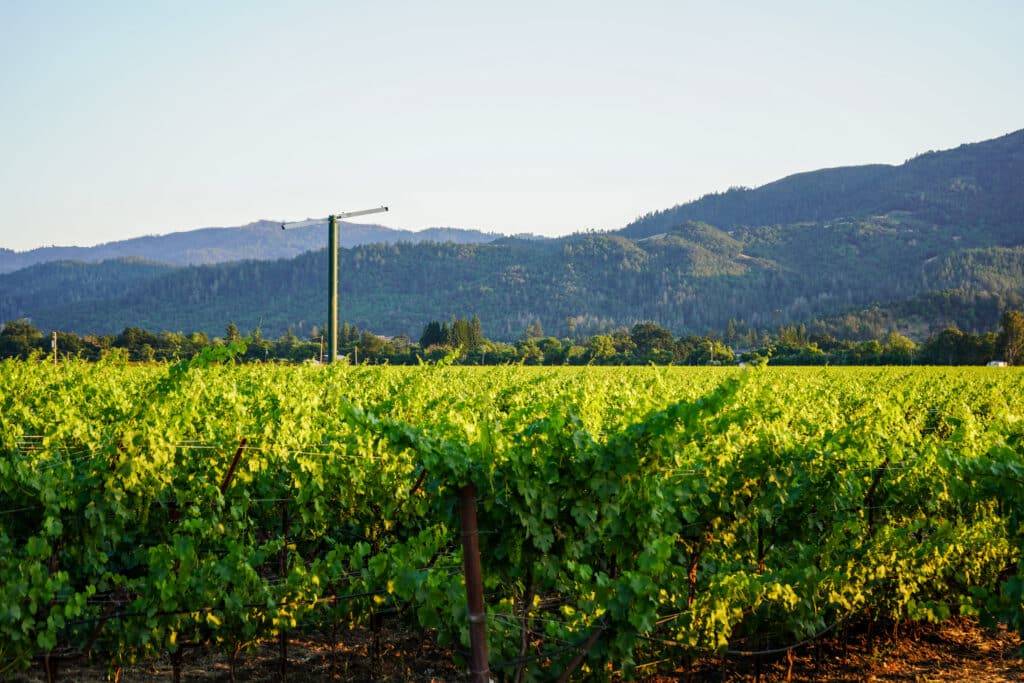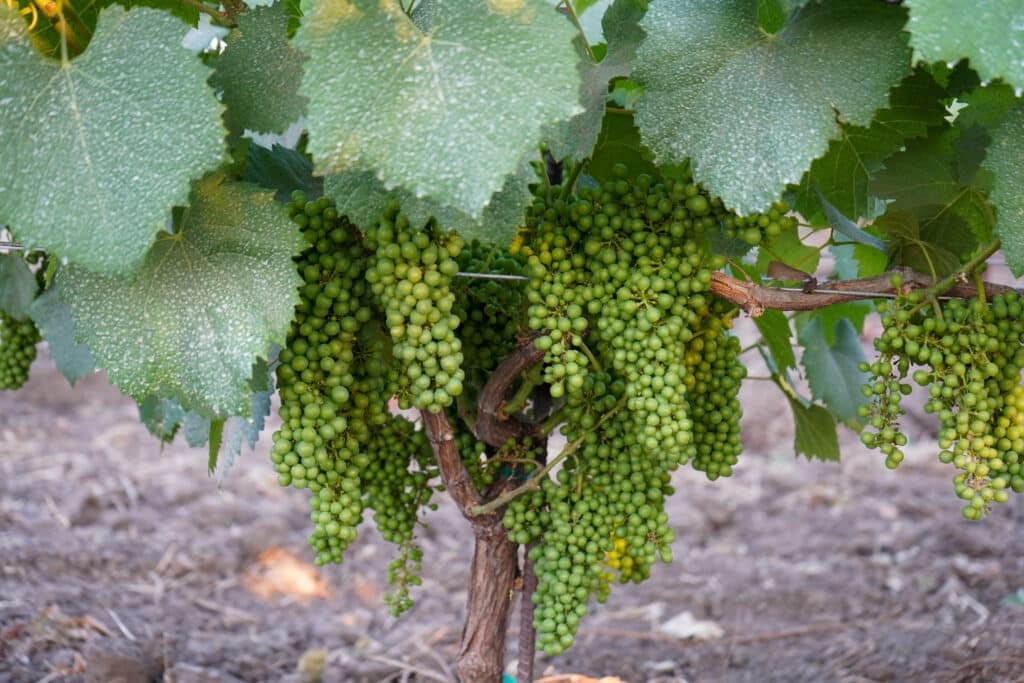What’s happening in the vineyards…
For many, summer means holidays and relaxation.. summer symbolizes the fun activities we all love: gardening, family time, and vacation. For vignerons, summer is hard work. The energy in the air buzzes and all plants, flowers, and vineyards are glowing with photosynthetic energy and rapid growth. Watering schedules if needed, disease & pest control, fertilizing, and plant shaping all play massive roles for high quality results. It’s the time of the year where there is a balance of effort into this year’s vintage and planning for future vintages. For the future of Neal Vineyards, we have been staking and planting new vineyards, keeping in mind critical considerations around climate change, changes in soil, rootstock & varietal changes, and irrigation designs.

Since Spring, we have completed a successful pollination in the vineyards (thankfully vines are self-pollinating), which has then set the stage for berry/fruit set. Essentially, the berries are half the size of green peas at this point as they go through berry development stage. As warm temperatures and photosynthesis continue, the small berries swell with water, nutrients, acids and proteins. Nurturing the fruit and giving them the ideal environment to grow is different each season and is an expertise learned year on year- especially with non-syntheic materials for our Organic Farming.
Canopy control and management is a vital component during the rapid growth from spring to summer. Vines have achieved their maximum shoot length, and it’s the farmer’s duty to maintain those shoots & leaves, securing the crop for the year. This includes proper trimming, crop thinning, keeping vital health of predator insects within the vineyard, cover crop management, and scheduled irrigations if needed.
Our canopy management goal is through a complex process of balancing sunlight, shade, and air circulation around fruit clusters. Our focus is to create dappled light through managing leaves. We want shade on the fruit clusters to protect from direct sun (sunburn on grapes is real); however, vigorous leafy growth can create too much shade and stifle air flow as well unwanted expended energy other than the fruit itself. Lack of proper air flow can foster mildew, mold and other diseases like black rot from fungus that can be harmful to the fruit. If the disease pressure is high, the balancing act is using canopy management as well as organic fungicide applications.
Farming without synthetic chemical “cides”: fertilizers, pesticides, fungicides, & herbicides
Being an organic vineyard means continual focus on farming practices and vine care. Organic farming is meant to keep the soil healthy and thus the crop being grown better and safer for the farmworker and consumption by prohibiting the use of synthetic additives, including chemical fertilizers, fungicides or pesticides. Instead, only what earth can provide from plants, water, animal-insects, or minerals is applied. For instance, our organic vineyards utilize organic fungicide such as sulfur, compost created from an organic farm that raises cows or chickens, we can use oyster shells for calcium and oils from plants for an example.
During spring and summer seasons is when the organic fungicide and fertilizers are applied. Feeding the vines these key organic nutrients keep the canopies healthy through harvest while utilizing organic fungicides prevents the vines getting mildew infections. We have been using organic fungicide and fertilizer since the start, beginning in 1966 at our Rutherford Property. By this long-term use of organic materials and not using weed killers lets our winter cover crop flourish to build naturally healthy organic matter in our soils.
Another important task during this time is releasing predator insects to feed on unwanted insects that can do damage to the grape leaves and fruit. Some like the vine mealybug, can actually kill a vine. In this case, we use a mealybug destroyer, the ladybird beetle.
Early viability of high-quality grapes and continual high grape quality is a direct result of decades of farming organically.

Want to learn more about our organic, Biodynamic® farming methods? Schedule a tour today!
